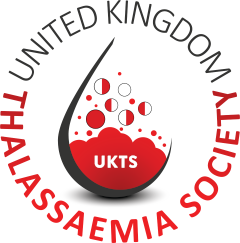Alpha thalassaemia

Information
Carrying alpha thalassaemia does not cause any illness. Most people who carry alpha thalassaemia do not know they have it. They only discover it when they have a special blood test.
However, it can cause confusion and in some cases it could affect the health of your children.
There are two types of alpha thalassaemia; alpha plus thalassaemia, which is harmless and alpha zero thalassaemia which may have more serious implications. This information applies to both types.
HARMLESS ALPHA THALASSAEMIA (ALPHA+)
If you, or one of your parents or grandparents, or in fact any of your ancestors originally come from: Africa (this includes African Caribbean’s, unless they have some Chinese ancestry), India, Pakistan, Bangladesh your alpha thalassaemia is harmless for you and your children.
You have a form of alpha thalassaemia called alpha plus thalassaemia. This is the mildest form of thalassaemia. It will never affect your health. You may pass it on to some of your children, but it will not affect their health. About 1 in 3 people originating from Africa or the Indian sub-continent carry alpha plus thalassaemia. In fact, it is normal for many people whose ancestors came from these areas to carry mild alpha thalassaemia. So you should not worry about it.
It is useful for you to know that you carry alpha plus thalassaemia, because otherwise, when you have a blood test, doctors may think that you carry a more serious form of thalassaemia. This could worry you unnecessarily. Your alpha thalassaemia could also be mistaken for iron deficiency. In your case, iron deficiency can be diagnosed only by measuring your serum iron (ferritin) level.
THE IMPORTANT FORM OF THALASSAEMIA – ALPHA 0
If you carry alpha thalassaemia and you or your parents or grandparents, or in fact any of your ancestors originally came from:
South East Asia, China (this includes people of Chinese origin from Hong Kong, Singapore, Malaysia, Indonesia), Thailand, Vietnam, Kampuchea/Cambodia, The Philippines. The Mediterranean area, Cyprus, Greece, Turkey, Southern Italy, the Middle East or if you do not know where your ancestors came from, or you are a North European you could carry alpha zero thalassaemia, or you could carry alpha plus thalassaemia.
Alpha zero thalassaemia is uncommon. It does not cause any illness. However, it could be a problem for some of the children of people who carry it.
If both parents carry alpha zero thalassaemia, some of their babies could have a very severe anaemia. But if they know they both carry alpha zero thalassaemia they can avoid this risk.
So if you carry alpha thalassaemia and you come from China or another part of South East Asia, the Mediterranean area or the Middle East, it may be important for you to find out which type of alpha thalassaemia you carry.
If you do not yet have a partner, remember that your alpha thalassaemia will not do you any harm. You need not do anything more now. Once you have a partner, take him or her for a blood test before you have children. If your partner does not have any type of thalassaemia, there is no risk for your children and you have nothing to worry about. But if your partner’s blood test result shows any unusual finding which might be associated with thalassaemia, you should see an expert in haemoglobin disorders for advice.
If you are not sure what type of alpha thalassaemia you carry and you need to find out, go to see your doctor and take this information with you. Your doctor can arrange further information and tests for you when necessary, through your local consultant haematologist, or the expert centres listed below.
IS THERE ANYTHING ELSE I SHOULD KNOW?
If you have inherited your alpha thalassaemia from your father or your mother, so your brothers and sisters and other blood relatives could also be carriers. If you or your ancestors come from South East Asia, the Mediterranean or the Middle East, show your relatives this information and advise them to ask for a blood test for alpha thalassaemia before they have children.
Further information and testing can be arranged through the following centres:
The University College Hospital (UCH) Perinatal Centre,
86-96 Chenies Mews
London WC1E 6HX
The SE Thames Regional Centre for Blood Disorders,
Dept. of Haematological Medicine,
King’s College Hospital,
Denmark Hill,
London SE5 9RS.
The National Haemoglobinopathy Reference Centre,
John Radcliffe Hospital,
Oxford.
